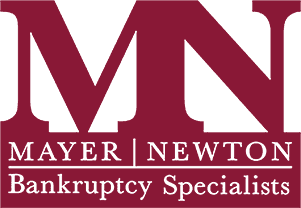What Are the Benefits of Filing for Chapter 13 Bankruptcy?
Chapter 13, in some circumstances, can offer significant advantages over Chapter 7. The main advantages are:
- More dischargeable debt: More debts are dischargeable in Chapter 13 than in Chapter 7. Some of the debts that are dischargeable in Chapter 13 but not Chapter 7 include debts from divorce or separation proceedings, debts from malicious injury to property., and debts incurred from paying non-dischargeable tax obligations.
- Affordable payment plans: Chapter 13 allows you to structure your debt repayments in payment plans based on what you can afford and your disposable income.
- Repay nondischargeable debt: Non-dischargeable back taxes and child support can be repaid throughout the case without interference from the creditors, and usually without further interest and penalties once the bankruptcy petition is filed.
- Keep property: A debtor can keep property in a Chapter 13 which might be lost to the trustee in Chapter 7. Your home and your vehicle are some examples of property that you can be able to keep if you are able to maintain the payments.
- Reduce secured debts: Secured debts in Chapter 13 are generally reduced to the value of the property involved. For example, if a debtor has a vehicle worth $6,000, but owes $8,000 against it, the secured debt is reduced to $6,000–the value of the vehicle. (For obvious reasons, this is referred to in legal jargon as a “cram down”.) Interest rates on secured debts are generally reduced to 9%.
- Prevent foreclosure and repossession: A debtor can prevent auto repossessions and home foreclosures, and (in the case of a home foreclosure) repay the delinquency over a period of time.
Should I File for Chapter 13 Bankruptcy?
If you are interested in filing for Chapter 13 but are not sure if it's the right choice, feel free to contact our bankruptcy lawyers for more information. Chapter 13 is a great option for those who do not qualify for Chapter 7 and have the disposable income to repay their creditors over a period of 3 to 5 years. We can review your debts and help you determine if Chapter 13 bankruptcy can be an effective solution to help you get rid of your debts.
We have offices in Sevierville, Knoxville, and Morristown for your convenience.
Schedule your free consultation today.

